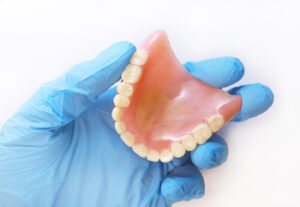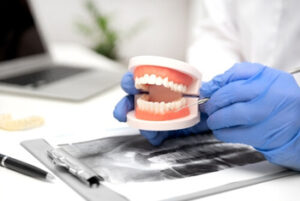If you’ve been considering partial dentures, one of the first things that may come to mind is the cost involved. It’s completely normal to want a clear idea of what to expect before making any decisions. Prices can vary, and several factors influence the final figure, making it helpful to understand what plays into it. Instead of guessing, having the right information can make your choices easier and less overwhelming. Whether you’re replacing one tooth or several, knowing how pricing works allows you to explore suitable options with more clarity. Let’s break down what affects partial dentures cost so you can move forward with confidence.
What Are Partial Dentures?

How Much Do Partial Dentures Cost?
In Australia, the starting price for partial dentures is approximately $1,000. This figure can shift depending on the design, structure, and type of denture needed. The condition of your existing teeth and how many need replacing also shape the overall cost. Because every smile is different, a personalised assessment is the most reliable way to determine what applies to you. Your dental professional can outline what’s involved and provide a clear estimate based on your exact needs.
What Factors Influence the Cost of Partial Dentures?
Understanding what shapes the price of partial dentures can help you make more confident and informed choices. With several styles and materials available, each option carries its own costs and benefits worth exploring.
Material Selection Makes a Difference
The type of material used significantly affects how much you’ll pay. Acrylic partial dentures are usually more affordable but may not last as long as other choices. Flexible dentures provide a more comfortable fit and a natural look, but come with a higher price tag. Metal partial dentures tend to offer more durability and support, and this long-term benefit is reflected in their cost. Each material also requires different processing, which can influence how much work is involved at the dental clinic.
Type of Partial Denture Chosen
Partial dentures come in several styles, each priced differently. Fixed partial dentures, often secured using dental crowns or implants, require additional steps and materials, making them more expensive than removable versions. Acrylic models are generally removable and cost less upfront. Flexible partial dentures sit somewhere in the middle, offering a mix of comfort and resilience. The more complex the design, the more you can expect to pay.
Number of Missing Teeth and Design
The number and position of denture teeth directly influence the final cost. A partial that replaces one or two teeth will generally be less expensive than one replacing five or more. More teeth mean more material, more adjustments, and more design planning to ensure a stable fit. Some patients may also need custom shaping to ensure the denture blends well with surrounding natural teeth, which can add to the cost.
Fit Adjustments and Denture Repairs
A proper fit is essential, and this often involves fine-tuning once the denture is made. The need for adjustments or minor denture repairs can increase the overall expense. While most fittings are straightforward, some patients may require additional appointments, especially if the jaw shape or bite alignment is complex. If the denture needs to be relined or reshaped soon after being fitted, this may involve extra fees.
The Role of Dental Implants
In some cases, a denture may be anchored to implants for added stability. An implant supported fixed bridge costs more due to the surgical placement of titanium posts and the added precision required. This option may appeal to those wanting a more secure and long-lasting result, but it will significantly influence the total denture cost. Discussing this in advance with the dentist is important if implants are being considered.
Location and Experience of the Dental Clinic
Where the denture is made and who provides the treatment will also impact what you pay. A dental clinic in a city centre may have different overheads compared to one in a regional area. The experience of the dentist, their approach to custom fitting, and the level of technology used in crafting the dentures also affect the overall cost. Each clinic may also include or exclude certain steps in their fee.
Private Health Insurance and Inclusions
Coverage through private health insurance may lower out-of-pocket expenses, but the amount depends on your policy and annual limits. Some plans cover a percentage of partial dentures cost, while others may also contribute to fittings, repairs, or relines. It’s helpful to know what’s included before committing, especially if you’re comparing flexible dentures to more traditional options.
What Is the Process Involved in Getting Partial Dentures?
Taking the first step toward partial dentures is a personal decision, and understanding the process can ease concerns and build confidence. Knowing what to expect before you begin helps you feel more prepared at every stage of your care.
Initial Discussion and Oral Check
The process usually begins with a detailed consultation. During this appointment, the dentist will examine your remaining teeth and assess the spaces where teeth are missing. They may take notes on how your upper and lower jaws align and whether additional support or care is needed. If any remaining teeth require treatment, such as cleaning or reshaping, this may be scheduled before the next step.
Impressions and Measurements
Once the mouth is ready, impressions are taken to record the shape of your gums and any existing teeth. This step is important to ensure the denture fits securely and functions comfortably. Measurements may also include details like how your bite comes together. These records are sent to a dental lab to begin crafting the framework and teeth that will make up your partial denture. The dentist will also discuss your preferences, such as colour matching or design options.
Wax Try-In and Adjustments

Final Fit of Your Partial Denture
When the final denture is ready, you return to the clinic for the fitting. The dentist places the partial into your mouth and checks for secure placement and comfort. Any rough spots or pressure points are adjusted to prevent irritation. The denture should feel snug but not tight, with no shifting when you talk or chew. This appointment may take some time to ensure a precise fit.
Learning How to Use and Care for It
Your dentist will guide you through how to insert and remove the denture. You’ll also receive instructions on cleaning and maintenance. This may include how to store it at night, which cleaning products to use, and when to return for check-ups. Proper care is key to long-term comfort and function. You may be advised to begin with soft foods to ease the adjustment period.
Follow-Up for Comfort and Fit
After wearing the denture for a short time, some people may need further minor adjustments. You’ll be encouraged to return for a follow-up to discuss how things are going. This visit helps fine-tune any areas of pressure, check that your speech and bite feel natural, and ensure you’re adjusting well. Regular reviews also help catch any early signs of wear or damage, keeping your denture performing well.
What Are the Main Advantages of Opting for Partial Dentures for Your Oral Health?
Keeps Remaining Teeth Aligned
When there are gaps in your smile, the neighbouring teeth can gradually shift into those open spaces. This movement affects how your upper and lower teeth come together and may change your bite. Partial dentures help hold the remaining teeth in position, which supports proper alignment and function.
Helps With Everyday Chewing
Missing teeth can limit your ability to eat comfortably. A well-made partial denture restores some of that biting power, especially when designed to match your natural bite. This lets you enjoy a wider variety of foods, helping you maintain a nutritious diet with fewer restrictions.
Maintains Jaw and Facial Support

Supports Oral Hygiene Routines
With gaps in the mouth, it’s easier for food debris to settle into hard-to-clean areas. Partial dentures create a smoother surface layout, making it simpler to clean and reducing the risk of decay or gum issues. They’re also removable, which makes daily cleaning more manageable.
Confused About Pricing? We’re Here to Help You Understand
Understanding what affects the price of partial dentures can help you plan more confidently and make informed decisions about your dental care. At our dental clinic, we believe clear guidance and personal support go hand in hand. Whether you’re comparing options or ready to restore your smile, we’re here to walk you through each step. From flexible dentures to fixed designs, we provide choices that reflect your needs and goals, not just the numbers. If you have questions about comfort, longevity, or payment, our team is ready to assist with practical advice that suits your lifestyle. Don’t let uncertainty stop you from regaining comfort and confidence. Please call us on 02 9051 0600 to discuss the right plan for you and find out how simple the process can be.
References
https://medlineplus.gov/dentures.html
https://www.colgate.com/en-us/oral-health/dentures/what-are-dentures-made-of






